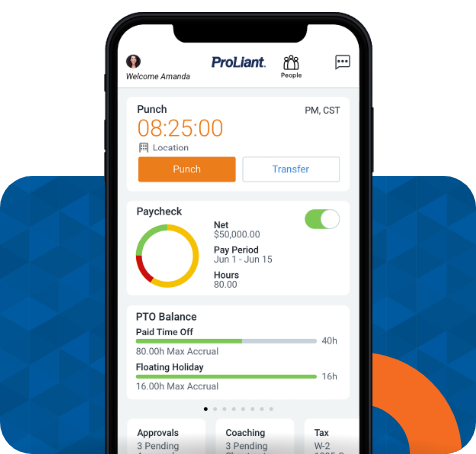Handling a wage garnishment is often an awkward task for an employer. And when you are a small employer with close employee relationships, wage garnishment is all the more uncomfortable. Who wants to have to be privy to the financial difficulties of a colleague (or a friend), as well as the bearer of bad news?
After all, your employees depend on their paychecks to feed their families, keep roofs over their heads, and pay their bills. They rely on you to pay them accurately and on time at every pay period. Now you have to tell them they will be paid less for the same work. Not fun. Morale can dip and loyalty can suffer, even if the garnishment has nothing to do with your company policy.
Is there a way to reduce the impact of the blow? Read on.
First a little background.
What is Wage Garnishment?
A wage garnishment is any legal or equitable procedure through which some portion of a person's earnings is required to be withheld for the payment of a debt. Most wage garnishments are from court orders though some may be issued from the Internal Revenue Service or State Tax Collection Agency. Common debts that require wage garnishment include: alimony payments, student loan repayments, unpaid child support and taxes.
Wage garnishments continue until the entire debt is paid or arrangements are made to pay off the debt.
The provisions of the Consumer Credit Protection Act governing wage garnishment apply to all employers and employees who earn compensation for personal services. Wages, salaries, commissions, bonuses, and pension and retirement plan payments are all considered to be compensation for purposes of wage garnishments. Tips, however, are usually not considered earnings in the case of wage garnishment.
In the event of receiving notification that you have to garner employee’s wages, you will receive a ‘wage garnishment package’ with all the information that you need to know including calculating the amount of the wages you have to garnish and where to send the money.
Be sure to follow the instructions carefully because you could be held legally liable for garnishing too little or too much. In some states, an employer can become liable to the creditor for the full amount of an employee’s judgment for issues such as not timely implementing a garnishment, not submitting a required response or not meeting one of the many other requirements of the garnishment.
While garnishments make the lives of creditors much easier, they can put a lot of stress on employees trying to settle their debts and businesses trying to comply with the court and agency-issued orders.
How to Soften the Blow
Business Consultant, Terry Corbell, outlines some good tips for handling employee wage garnishments.
- Notify your employee in writing and keep it confidential.
- Inform your HR and payroll departments. (Many employees have a tendency to ignore the letter.)
- Reassure your employee and take steps to maintain a good relationship with them. It’s unlawful to terminate a worker over a single debt.
And when it comes to employers who are worried about compliance, you don’t have to go it alone.
Many companies simply don’t always have the people on staff to deal with paperwork that needs to be carefully monitored, reviewed and stored in a way that can be reasonably accessed for future reference.
Your online payroll services may be able to help you ease the pain. At Proliant, some of the valuable maintenance services we provide beyond the typical garnishment payments are monitoring garnishments as they relate to the overall debt, writing termination letters on behalf of clients, and reporting to agencies on a per pay period basis as required.
Any questions about garnishment, please let us know.








No Comments Yet
Let us know what you think